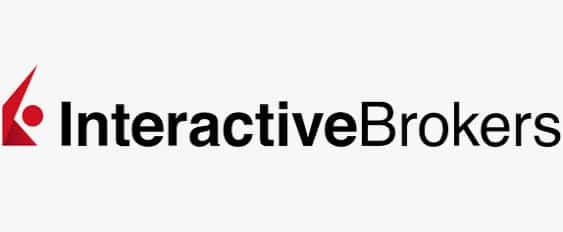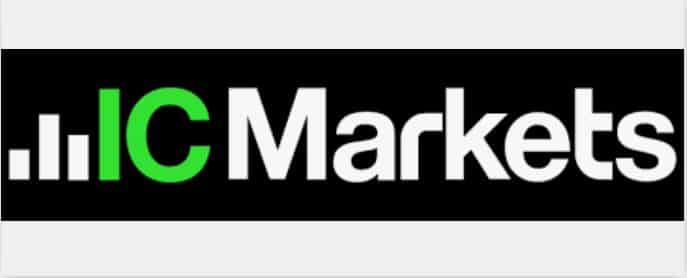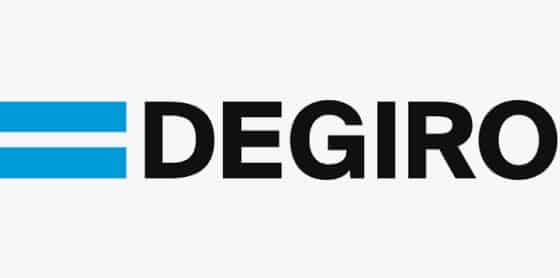How to Start Investing: Beginners Guide
Introduction
Investing means allocating your resources such as your money and time into something that would appreciate in value with the expectation of achieving a financial profit.
Saver, Investor or Spender, which one are you?
According to the Bank of Ireland, savings and investment index, 51% of Irish people save money regularly this is impressive, however 47% of the people are not saving enough. In the same report it stated that 36% of Irish people invested regularly and 52% of the investors are confident that they invested the correct amount.
Saving or Investing: Understand the difference
Saving does not produce wealth but it is a safe way to keep your money and earn an interest on your money. The funds in your savings are also insured, but the problem is only a the interest on most savings account cannot beat or keep up with the level of inflation hence your money will lose value and its purchasing power decreases the longer you save. Savings are great for building up an emergency fund
Unlike Savings, Investing comes with risks and there is a possibility of losing money and in addition to that, the money you invest is not insured. However there is also an opportunity to earn more money, if you invest in the right investment products and reduce your risk and earn a meaningful return. Saving or Investing work hand in hand.
Saving is a necessity in your financial journey because it is a means to an end. Building up savings will provide the funds that you will use to invest. With Investing your money earns money and when you buy a financial asset, you are holding something that can increase in value. If you are not ready to start investing, you can check out some high interest savings account that can provide you with a decent return.
Why You Should Consider Investing?
Investing is an effective way of reaching your financial goals and building wealth. Before you begin investing, you must first define your goals based on your needs, life stage and create a financial plan. You could use the assistance of a financial advisor to help you with investment advice that would be suitable for your financial goals and personal circumstance. The benefit of investing is that when successful it may outperform inflation and will allow you to manage the cost of living crisis that is caused by inflation. The greater benefit of investment is that a long term investment with effective investment strategy is compound interest.
How Much Should I Invest?
The amount of money that you should invest is entirely dependent on you and your circumstances. As a guide, when you have set aside an emergency fund of at least 3 – 6 months of your monthly expenses, then you can invest the rest.
There are other factors that can affect how much you invest and your investment portfolio in general. Some examples are time horizon and goals, net worth and income, marital status, Pension to mention a few.
>> Read more: Building an Investment Portfolio and Factors that can Influence an Investment Portfolio
How Investing Works?
There are many ways to invest your money. The most common type of investments are stocks, bonds, gold and foreign exchange. Other investment vehicles are mutual funds Index funds and exchange traded funds. These assets can be in the financial market. This is where you can buy and sell shares of stocks, bonds, and other assets. In order to buy and sell in the stock market, you will need to open an investment account such as a brokerage account, where you fund with cash that you will use to purchase your investments.
In the stock market, the way investing works is that you can lose or make money depending the price you buy the assets. For instance if you buy 10 shares at $5 per share and sell at $10 per share, it means that you have gained $50. Alternatively if you sold the same shares at $3 per share, it means you lost $10. You only realise your gains and loses when you sell the asset.
Types of Investment Accounts
In the financial market, you can buy and sell stocks, bonds and other assets. To be able to trade these assets in the financial market, you will need to open an investment account, which you fund with cash that you can purchase and trade with ease assets. Here are some examples of investment account.
- Brokerage Account – This can be self directed investing brokerage account or fully managed by an advisor. With your brokerage account, you have the final investment decision. You have the option to trade securities on your own or get an advisor who will assist you in executing your purchase and sales instructions. There are also costs attached to these trade instructions. There are 2 types of brokerage account, cash account and margin account
- Individual Savings Account
- Retirement Account
>> Read More: Types of Investment Accounts
Risks of Investing
Investing comes with high risks and they should be evaluated carefully before you decide to invest. Whatever investment type you choose to invest in ensure you consider the objectives, risks, charges, and expenses associated with the investment type before making an investment decision. If you don’t understand the risks and charges clearly consult with a financial advisor. Be sure to remember that compared to savings, when you invest when you have a good chance of losing your investment than when you save. Your investments are not insured and you could lose your initial investment but on the bright side you have a great opportunity to earn more money on your investmens.
Actionable Steps to Take to Start Investing?
- Know yourself including your level of investment experience, risk appetite or risk tolerance and financial habit. Use a financial advisor.
- Decide on your investment objective. Whether saving for a house, college or increase your pension pot.
- Establish your time frame for investment
- Choose the type of financial product you want to invest based on your time frame and risk profile.
- Open an Investment account.
- Monitor your account and keep track with it to ensure you are meeting your objectives.
>> Read more: Checklist for Investing
Investment Goal Illustration
Low Risk Investments for Beginners
- High Interest Savings Account: Interest rates are set by central banks, in the case of Ireland it is Central Bank of Ireland or Bank of England for United Kingdom. The apex bank helps manage and control the impact of inflation on the economy. Inflation has a way of eating into your savings, so always look for a savings account that can cover the inflation rate over time. Interest rates in Ireland for savings is low compared to UK savings account interest rate. For my Irish readers, see Raisin Bank High interest savings account that have interest rates for up to 6%. High interest savings remains a safe way of investing because your deposit is insured.
- Deposit Account: This is an alternative to a savings account where you have easy access to your money at any time. The funds in a deposit account will usually remain on deposit for a fixed period of time. They may offer high interest rates than a high interest savings account. Longer terms may have more favourable rates. You can consider a deposit account when you can afford to leave your funds alone for a long period of time and you are aiming for a goal. Read more about best fixed deposit accounts
- Mutual funds: Mutual funds is an investment vehicle usually actively managed by a fund manager. This investment type pools funds from different investors which is invested in asset classes such as equities, bonds and money market securities. Some key benefits of investing in mutual funds is ease of access to your capital, professionally managed by a fund manager, lower entry threshold and usually diversified. Look at some of our best performing mutual funds.
- Dividend Stocks: Dividends are paid out to shareholders from the profit a company made, usually on a quarterly basis. Investing in dividend stocks or dividend stock fund means you are buying stocks that yield dividend income that yield returns more than the average market dividend returns. Lets look at some the best high dividend company stocks or best dividend stock funds in the market.
- Treasury Bills, Treasury Notes, Bonds, and TIPS: These types of government issued securities are low risk investments and may be best suited for beginners. Here are some key differences, how to buy and examples of Treasury Bills, Treasury Notes, Treasury Bonds and TIPS.
- Government Bonds: They are issued by governments to raise money to finance major projects or operations. Some examples are Savings bonds, Municipal bonds
>> Read More: 5 Best Investments for Beginners and Types of Low Risk Investment for Beginners
Open an Account and Start Investing
An Investment or Trading platform is a platform that offers easy access to a comprehensive range of investment products and funds and other investment services. On the platform you are able to place instructions online to buy, sell or switch funds, gain researched insights and investment ideas. Knowing the best investment platform in addition to tools and Information to help you find the best ways to invest your money and reach your financial goals.
Picking the right online broker for you, that suits you, is therefore an important choice — and not necessarily a simple one. Each share dealing platform charges different fees while offering various investment options, trading tools, education, and market research
Best Online Brokers for Beginners
Brokerage Firm
Fees
Minimum
Features
Countries Available
- Free Account opening
- 0% Commission on Stocks
- No Management Fees
- $10/Month inactivity fee after 12 months
- Click for transaction fees
$50
- Friendly and responsive platform
- Wide range of assets to trade incl. crypto
- Great client service
UK and Ireland
Read Full Review
- Fees are generally low
- Simple pricing structure
$0
- IBKR high technology trading platform
- Access to wide selection global assets in multiple currencies.
- Comprehensive research, trading and reporting tools.
UK and Ireland
Read Full Review
- Lorem ipsum dolor sit amet, consectetu
€300
- Lorem ipsum dolor sit amet, consectetur adipiscing elit.
UK and Ireland
Read Full Review
Lorem ipsum dolor sit amet, consectetu
$0
- Lorem ipsum dolor sit amet, consectetur adipiscing elit. Ut elit tellus, luctus nec ullamcorper mattis, pulvinar dapibus leo.
UK and Ireland
Read Full Review
Lorem ipsum dolor sit amet, consectetu
$0
- Lorem ipsum dolor sit amet, consectetur adipiscing elit. Ut elit tellus, luctus nec ullamcorper mattis, pulvinar dapibus
UK and Ireland
Read Full Review
Lorem ipsum dolor sit amet, consectetu
$0
- Lorem ipsum dolor sit amet, consectetur adipiscing elit. Ut elit tellus, luctus nec ullamcorper mattis, pulvinar dapibus
UK and Ireland
Read Full Review
Types of Investments
Knowing where to put your money is a very important decision in your investment journey. There are different types of investments but here we will focus on financial asset. This types of asset derives their value from bonds, or companies share capital. There are a variety of financial asset you can invest in and earn a return. Remember investing requires you to risk your money and invest it over time with a reasonable expectation to earn a positive return through price increase or income such as dividend.
Equities/Stocks: Public limited Companies listed on the stock exchange use the stock market to raise capital to run their day to day operations, company growth or expansion by issuing stock or bonds. When you buy a stock, you buy and own a small interest in the company. The different types of stocks include listed common stock, preferred stock and restricted stock. when a company is listed, it is listed at a stock price. Stock price represents the value of the company and is determined by what the market is willing to pay or accept on a given day. Stock prices are volatile and are considered riskier investments than bonds. The reason for this is because bad news about a public trading company can easily affect its price because people may want to sell their shares quickly while buyer will only play less for the shares which drives the stock price down. The implication of a stock price drop is that you face the risk of losing money especially if you hold a large amount of shares. Another risk of investing in stocks is that when a company goes bankrupt shareholders have no guarantee to receive their money back unlike bond holder who will receive their money as they have priority.
Fixed Interest Securities : They are also called bonds and are actually loans. A company that issues a bond is effectively asking investors in the stock market for loan in order to raise money for the company. They represent the debt of an issuer. When you invest in a bond you are giving a loan to the bond issuer while the issuer promises to pay back in fixed interest payments; There are different types of fixed income bonds and they include the following
- Government Bonds
- Municipal Bonds
- Agency Bonds
- Corporate Bonds – Investment-grade bonds and high yield bonds
- Emerging Market Debts
- Certificate of Deposits
Listed Options: This is a type of derivative traded on an exchange. Listed options are contracts that grant the right, but not the obligation, to buy or sell an underlying asset at a set price on or before a certain date. They are listed on the stock exchange, it can be a Call options or a Put options. There are 3 types of listed options, European Options, American Option and Bermudan Option.
Structured Investments: Sometimes called Structured products. These products are fixed term securities that establish payoff profiles and details potential benefits and its ISAs are linked to market outcomes. The underlying assets can be equity or debt securities, foreign currencies, interest rates, indexes, and commodities.
Mutual Funds: It is an investment company that pools money from various investors and invest in stocks, bonds and other securities or asset or a combination of the assets. Investing in mutual funds is a great option to meet your long term financial goals. The benefit of mutual funds is that they are professional managed by qualified and experienced fund managers and are diversified. They are seen as an easy and efficient way to invest. The holdings of a mutual found are called its portfolio and each share of the mutual fund represents the ownership of the funds and the income it generates.
Money Market Funds: Investing in money market funds (also known as fixed income mutual fund) gives you the opportunity to earn a higher return than a high return savings account or fixed deposit account. Generally, these funds invest in short term fixed income (debt) securities, they carry a low level of risk and are of a high quality asset. Although the risk of default is low, they are not insured and the fund is not guaranteed to maintain its value.
Exchange Traded Funds – ETFs : These are funds that are traded on the stock exchange and tracks a special index. Investors in ETFs are able to pool their money together in the fund that invests in stocks, bonds or a combination of financial assets and in return receive an interest in the pool of investments. Investing in ETFs gives you an opportunity to invest in a spectrum of financial asset classes, benchmarks and /or investment strategies.
Annuities: An annuity is an insurance contract in which you make series of payments or lump sum payment to an insurance company in exchange of series of fixed income payments in the future. There are different types of annuities, the most common is the pension annuities which is designed to help you achieve your retirement goals. You should seek financial advice when buying an annuity and do your research as some providers are more expensive than others.
Life Insurance: Yes life insurance is also an investment, and a very important one at that but you are not a direct beneficiary. The way life insurance works is that you take out a policy with an insurance company in which you pay series of insurance premiums to the insurance company and they pay a lump sum amount to your designated beneficiary in the event of your death.
Alternative Investments: These are non-traditional investments which are not offered to the general public. Examples are hedge funds, private equity funds, real estate funds and other unregistered fund of funds. These funds may invest in various types of assets and financial instruments including publicly traded or non publicly traded companies, digital assets, real estate investment trusts (REITs)
Researching Investments: How to Read an Annual Report
Publicly listed companies are required by law to publish an annual report. The annual report provides in-depth details of the companies operations and financial conditions so that stakeholders, including potential and current shareholders can make informed decisions before investing into the company. The annual report consists of letter to shareholders, management discussion and analysis, audited financial statements, summary of financial data, auditors report and accounting policies. The most useful statements in the annual report is the cashflow statement, the balance sheet and income statement. These 3 statements will provide details on whether the company is able to pay its debts when they are due, its P&L year on year, company growth over time, compare its operational expenses and its revenue and what it needs to maintain or expand its business.
>> Read More: Researching Investments
How Interest Rates Affects the Stock Market?
The rate a lender charges a borrower to repay debts over time has an opposite effect on the stock market. The central bank is responsible for setting the interest rate. The stock market reacts quickly to changes in interest rate, because it immediately affects an investors perception or expectation about the stock performance in the future. Some types of stocks are impacted differently than others to changes in interest rate. For instance, Value stocks tend to be more stable than growth stocks in times of increasing interest rates. This is because value stocks are stocks for well established companies that pay stable and regular dividends.
>> Read More: Interest Rates and Stock Market
Factors to Consider Before Investing?
We advise that you get a financial or investment advisor before making any investment decision, here are some of the questions that you can ask your financial advisor if you decide on an investment product.
- Is this investment product registered?
- Is this investment suitable for me and why?
- Does the investment match my investment goals?
- How will this investment make money? is it through dividends, interest, or capital gains?
- What must happen for my investment to increase in value? example increase in interest rate , real estate value or market share.
- What are the total fees to purchase, sell and maintain this investment?
- How can I reduce fees or avoid fees?
- After all fees are paid, how much does the investment have to increase in value to break even?
- How liquid is this investment? and how easy is it to sell if I needed money right away?
- What are the specific risks associated with this investment?
- What is the maximum I can loose?
>>Read more: Important questions investors should ask.
Stock Exchange
Investors meet at a marketplace called a stock exchange to trade stocks, either to buy or to sell. Stocks not traded on a stock exchange are done over the counter. The stock exchange trades can be done physically or electronically. Countries have their own stock exchange, where stocks are listed and each stock exchange have their own listing requirements.
>> Read More: How Stock Exchanges work
What is FTSE 100?
FTSE 100 is UK’s stock market index that created by the FTSE Russell group. FTSE stands for Financial Times Stock Exchange. The index is comprised of the 100 highly capitalised companies in the UK that is listed on the London Stock Exchange. It also tracks the movement of these 100 companies in the UK
>> Read More: How to Invest in FTSE 100
What is S&P 500?
The S&P 500 index is comprised of 500 largest publicly traded companies in the US, from leading industries. It is a market capitalisation weighted index. The index tracks the performance of these 500 companies.
>> Read More: How to invest in S&P 500
Investing Books You Should Read
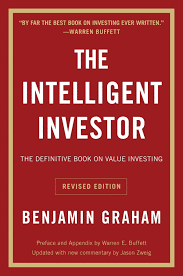
Intelligent Investor: Lorem ipsum dolor sit amet, consectetur adipiscing elit. Ut elit tellus, luctus nec ullamcorper mattis, pulvinar dapibus leo. Lorem ipsum dolor sit amet, consectetur adipiscing elit. Ut elit tellus, luctus nec ullamcorper mattis, pulvinar dapibus leo.Lorem ipsum dolor sit amet, consectetur adipiscing elit. Ut elit tellus, luctus nec ullamcorper mattis, pulvinar dapibus leo.

Rich Dad Poor Dad: Lorem ipsum dolor sit amet, consectetur adipiscing elit. Ut elit tellus, luctus nec ullamcorper mattis, pulvinar dapibus leo. Lorem ipsum dolor sit amet, consectetur adipiscing elit. Ut elit tellus, luctus nec ullamcorper mattis, pulvinar dapibus leo.Lorem ipsum dolor sit amet, consectetur adipiscing elit. Ut elit tellus, luctus nec ullamcorper mattis, pulvinar dapibus leo.
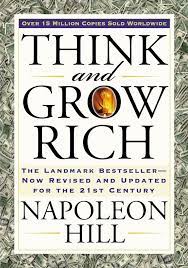
Think and Grow Rich: Lorem ipsum dolor sit amet, consectetur adipiscing elit. Ut elit tellus, luctus nec ullamcorper mattis, pulvinar dapibus leo. Lorem ipsum dolor sit amet, consectetur adipiscing elit. Ut elit tellus, luctus nec ullamcorper mattis, pulvinar dapibus leo.Lorem ipsum dolor sit amet, consectetur adipiscing elit. Ut elit tellus, luctus nec ullamcorper mattis, pulvinar dapibus leo.
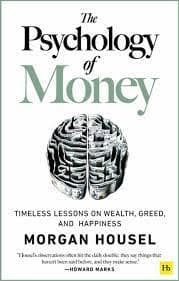
The Psychology of Money: Lorem ipsum dolor sit amet, consectetur adipiscing elit. Ut elit tellus, luctus nec ullamcorper mattis, pulvinar dapibus leo. Lorem ipsum dolor sit amet, consectetur adipiscing elit. Ut elit tellus, luctus nec ullamcorper mattis, pulvinar dapibus leo.Lorem ipsum dolor sit amet, consectetur adipiscing elit. Ut elit tellus, luctus nec ullamcorper mattis, pulvinar dapibus leo.
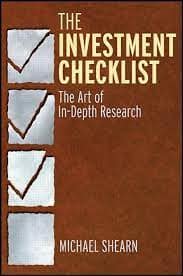
The Investment Checklist: Lorem ipsum dolor sit amet, consectetur adipiscing elit. Ut elit tellus, luctus nec ullamcorper mattis, pulvinar dapibus leo. Lorem ipsum dolor sit amet, consectetur adipiscing elit. Ut elit tellus, luctus nec ullamcorper mattis, pulvinar dapibus leo.Lorem ipsum dolor sit amet, consectetur adipiscing elit. Ut elit tellus, luctus nec ullamcorper mattis, pulvinar dapibus leo.

The Essays of Warren Buffet: Lorem ipsum dolor sit amet, consectetur adipiscing elit. Ut elit tellus, luctus nec ullamcorper mattis, pulvinar dapibus leo. Lorem ipsum dolor sit amet, consectetur adipiscing elit. Ut elit tellus, luctus nec ullamcorper mattis, pulvinar dapibus leo.Lorem ipsum dolor sit amet, consectetur adipiscing elit. Ut elit tellus, luctus nec ullamcorper mattis, pulvinar dapibus leo.
Tips for a Successful Investing
- Commit to Saving and Investing more.
- Reinvest dividend and reap the long term benefits of compounding
- Diversify your investment portfolio.
- Make an informed investment plan and stick to it.
- Market volatility is inevitable so dont allow it to discourage you from investing.
- Good things come to those who wait. Stay invested, you cannot outsmart the market by timing the market for cheap and costly wins.



